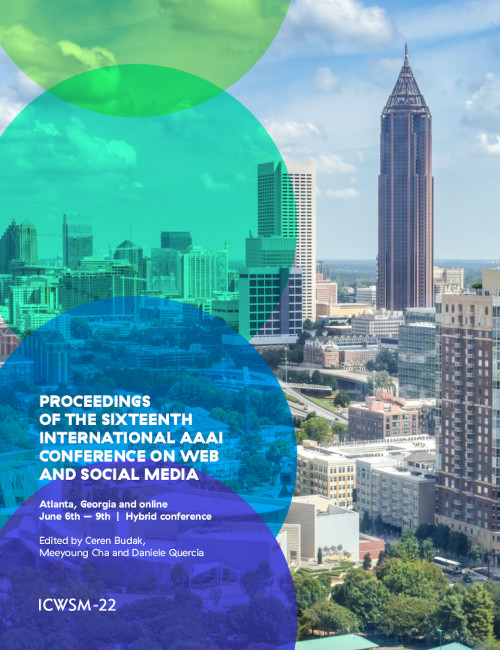Online Social Support via Avatar Communication Buffers Harmful Effects of Offline Bullying Victimization
DOI:
https://doi.org/10.1609/icwsm.v16i1.19351Keywords:
Psychological, personality-based and ethnographic studies of social media, Social network analysis; communities identification; expertise and authority discovery, Organizational and group behavior mediated by social media; interpersonal communication mediated by social mediaAbstract
Online social support via avatar communication is a powerful tool for bullying victims because they often lack offline social resources. Additionally, avatar communication allows users rich nonverbal interactions (e.g., emotional expressions) while maintaining online anonymity. This study investigates the role of online social support via avatars for victims and how to facilitate such support. Accordingly, we conducted an online questionnaire survey twice on an avatar communication application, Pigg Party, regarding mental health, offline and online social support, and offline bullying victimization (participants: 3,288 (1st wave) and 758 (2nd wave)). We found that online social support via avatars supplemented insufficient offline social resources, particularly when there was a high risk of offline bullying victimization. Furthermore, we investigated how online social support is improved by ego networks using social network data from Pigg Party. We demonstrated that belonging to large and closely connected communities can enhance online social support. Our findings suggest that avatar communication applications can improve players' mental health through online social support, reinforced by facilitating ego networks.Downloads
Published
2022-05-31
How to Cite
Takano, M., & Yokotani, K. (2022). Online Social Support via Avatar Communication Buffers Harmful Effects of Offline Bullying Victimization. Proceedings of the International AAAI Conference on Web and Social Media, 16(1), 980-992. https://doi.org/10.1609/icwsm.v16i1.19351
Issue
Section
Full Papers

